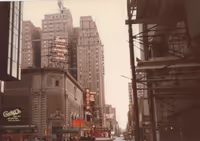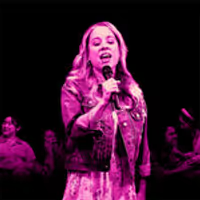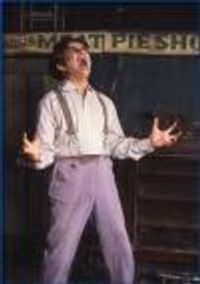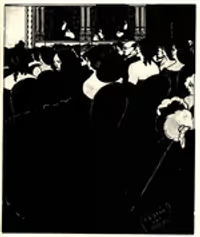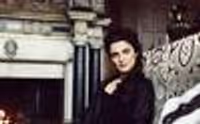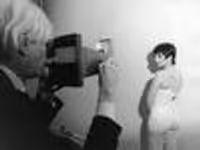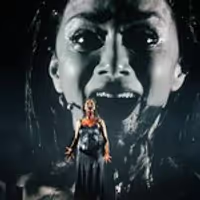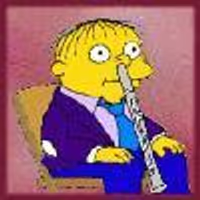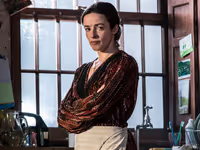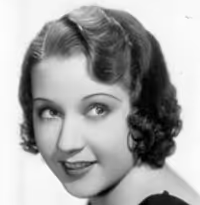EVITA at the ART - Reviews
Globefan
Broadway Legend Joined: 10/31/12
#25EVITA at the ART - Reviews
Posted: 5/27/23 at 1:04pm
I'm friends with a friend of one of the ensemble. He told me that Rachel is doing the Broadway run.
#26EVITA at the ART - Reviews
Posted: 5/27/23 at 2:10pm
MimiChika said: "RippedMan said: "Elevators? Can you explain?
Usually the ART productions are fairly simple design wise so curious to hear more about this! The production photos look stunning to me."
There’s 2 elevators on stage. From what I saw props and actors come from underneath the stage. It looks pretty amazing. Also there’s a giant Argentinian flag at the end of act one, is the entire length of the stage, it’s massive, it looks stunning.
the production looks pretty expensive to me."
Thank you! Love Jason’s set designs and it looks gorgeous!
TarHeelAlan
Leading Actor Joined: 4/1/20
#27EVITA at the ART - Reviews
Posted: 5/27/23 at 7:45pm
Globefan said: "I'm friends with a friend of one of the ensemble. He told me that Rachel is doing the Broadway run."
Any word if she'll do DC as well?
#28EVITA at the ART - Reviews
Posted: 5/27/23 at 7:46pm
Word is no Rachel until NY.
MimiChika
Understudy Joined: 2/26/23
#29EVITA at the ART - Reviews
Posted: 5/27/23 at 10:59pm
dramamama611 said: "Word is no Rachel until NY."
I think if they move the show sooner to NYC no Rachel. That being said I heard Raul Esparza will be Che for the broadway run. Apparently he got cast but couldn’t do A.R.T cause of Oliver.
Any info on the theater? The Imperial?
#31EVITA at the ART - Reviews
Posted: 5/28/23 at 12:53am
Just from the visuals, it looks like it's a smaller scale revival? I'm not sure about the orchestra or ensemble, but I could see it playing like the Broadhurst or something similar in size? But there isn't a ton available. Maybe the Jacobs by fall?
MimiChika
Understudy Joined: 2/26/23
#32EVITA at the ART - Reviews
Posted: 5/28/23 at 1:14am
RippedMan said: "Just from the visuals, it looks like it's a smaller scale revival? I'm not sure about the orchestra or ensemble, but I could see it playing like the Broadhurst or something similar in size? But there isn't a ton available. Maybe the Jacobs by fall?"
Well from the program: cast is 26 folk plus swings. 16 piece orchestra just like the 2012 revival. So I wouldn’t consider that a small revival. Maybe the imperial?
also Shereens “you must love me” is a showstopper.
#33EVITA at the ART - Reviews
Posted: 5/28/23 at 7:58am
MimiChika said: "dramamama611 said: "Word is no Rachel until NY."
I think if they move the show sooner to NYC no Rachel. That being said I heard Raul Esparza will be Che for the broadway run. Apparently he got cast but couldn’t do A.R.T cause of Oliver.
Any info on the theater? The Imperial?"
Esparza was Che is the 90’s tour that was supposed to go to Broadway but didn’t. It was his “big break” and he is INCREDIBLE in clips I’ve seen of it. I mean, Che isn’t usually 50, but I guess he could be any age. He would sell tickets…and maybe finally get that Tony?
MimiChika
Understudy Joined: 2/26/23
#34EVITA at the ART - Reviews
Posted: 5/28/23 at 10:02am
The Distinctive Baritone said: "MimiChika said: "dramamama611 said: "Word is no Rachel until NY."
I think if they move the show sooner to NYC no Rachel. That being said I heard Raul Esparza will be Che for the broadway run. Apparently he got cast but couldn’t do A.R.T cause of Oliver.
Any info on the theater? The Imperial?"
Esparza was Che is the 90’s tour that was supposed to go to Broadway but didn’t. It was his “big break” and he is INCREDIBLE in clips I’ve seen of it. I mean, Che isn’t usually 50, but I guess he could be any age. He would sell tickets…and maybe finally get that Tony?"
I think Raul is the right age, at A.R.T older Che sings and narrates the show and they have a younger che on stage. Is a new concept
#35EVITA at the ART - Reviews
Posted: 5/28/23 at 11:13am
I am curious why Soleil Pfeiffer who played the NYCC shows isn't involved? She was just on the recent PBS special singing Evita, & was wonderful.
MimiChika
Understudy Joined: 2/26/23
#36EVITA at the ART - Reviews
Posted: 5/28/23 at 11:32am
inception said: "I am curious why Soleil Pfeiffer who played the NYCC shows isn't involved? She was just on the recent PBS special singing Evita, & was wonderful."
She’s not latinx. The entire cast at A.R.T is latinx.
#37EVITA at the ART - Reviews
Posted: 5/28/23 at 8:14pm
MimiChika said: "inception said: "I am curious why Soleil Pfeiffer who played the NYCC shows isn't involved? She was just on the recent PBS special singing Evita, & was wonderful."
She’s not latinx. The entire cast at A.R.T is latinx."
I don't care if people want to identify as a broomstick but to be honest with you, most Latinos don't identify as Latinx or have even heard of the term. I'm fine using it when people want to be identified as such but it shouldn't be the go-to, IMO.
#38EVITA at the ART - Reviews
Posted: 5/28/23 at 8:46pm
True, and Latine is a term growing in usage, because Latinx was made up by people who don't speak Spanish.
#40EVITA at the ART - Reviews
Posted: 5/29/23 at 2:17pm
MimiChika said: "inception said: "I am curious why Soleil Pfeiffer who played the NYCC shows isn't involved? She was just on the recent PBS special singing Evita, & was wonderful."
She’s not latinx. The entire cast at A.R.T is latinx."
What the frig is latinx never heard of that? I even asked friends and they said the same?
#41EVITA at the ART - Reviews
Posted: 5/29/23 at 2:33pm
Gender neutral term meant for someone that is latina, but why not just say Latin?
MimiChika
Understudy Joined: 2/26/23
#42EVITA at the ART - Reviews
Posted: 5/29/23 at 2:39pm
Back to the topic.
do we think a transfer in the fall?
they are supposed to open in DC first week of September.
kingjames2
Chorus Member Joined: 11/26/13
#43EVITA at the ART - Reviews
Posted: 5/30/23 at 3:08pm
I would say a fall transfer is unlikely, given that the DC production would close in late October at the earliest.
MimiChika
Understudy Joined: 2/26/23
#44EVITA at the ART - Reviews
Posted: 5/30/23 at 3:37pm
kingjames2 said: "I would say a fall transfer isunlikely, given that the DC production would close in late October at the earliest."
Well, per Instagram, it has now been extended at A.R.T till July 30. The run in D.C according to their website is Sep 5 to Oct 8
#45EVITA at the ART - Reviews
Posted: 6/7/23 at 11:37pm
I just got back from seeing it and while I'm still processing here are some thoughts
1. I really liked the actor playing Che... however I completely missed the older/younger version of Che concept it seems
2. I was not impressed with Shereen... maybe she was having an off night but she missed many notes and I've never heard quality sung with so many syllables
3. The direction/choreography in Buenos Aires seemed to contradict itself... Eva is portrayed as being a victim when she came to BA in this production yet the lyrics make it clear she will do whatever she needs to... like Blanche Devereaux, she is willing to pay with nature's credit card
#46EVITA at the ART - Reviews
Posted: 6/8/23 at 11:22am
wiggum2 said: "I just got back from seeing it and while I'm still processing here are some thoughts
1. I really liked the actor playing Che... however I completely missed the older/younger version of Che concept it seems
2. I was not impressed with Shereen... maybe she was having an off night but she missed many notes and I've never heard quality sung with so many syllables
3. The direction/choreography in Buenos Aires seemed to contradict itself... Eva is portrayed as being a victim when she came to BA in this production yet the lyrics make it clear she will do whatever she needs to... like Blanche Devereaux, she is willing to pay with nature's credit card"
I was at the matinee and Shereen wasn't on. One of the ushers told me she has a concussion, so maybe she's on a reduced performance schedule?
Anyway, I largely agree with the points above. Buenos Aires needs to be restaged, along with, and I hate to say it, Don't Cry for Me Argentina. Spoilers below.
- Evita has always been a dance-heavy show, and this production is no exception, but I was perplexed as to when the dancing was supposed to be furthering the story and when it was dancing for dancing's sake. Buenos Aires does both. It's the standard "Eva dances in the streets" at first, and then, during the dance break after the polo match, we get a montage of Eva being repeatedly groped and harassed by the men of the city, which is then immediately followed by the joyful final chorus. They're obviously trying to highlight the exploitation the real-life Eva no doubt faced, but in the midst of such a celebratory song it makes no sense and doesn't work.
- As for DCFMA, I thought Isabella Lopez sang it beautifully by the staging was all wrong. This is the only time when we see the "stair" motif that's appeared in production photos, and the moment of Evita on the balcony manipulating her adoring public has been changed to her alone on a stage full of flowers, with no audio of the cheering crowds. During her post-song speech the stairs ascend and we see Eva on a pedestal in the middle of the stage while the ensemble bow on the floor around her.
- I was interested in the concept of Che as a former Peronist who later defects, but he's dressed in modern day street clothes, and I have zero idea what that's supposed to imply. Costuming all around was a bit of a missed opportunity. The ensemble wears gray, and Eva only ever wears white (with black accents during The Rainbow Tour.) Feels like a missed opportunity to take a show like this and suck out all the color, but I guess that's not what this production cares about.
*Edit* It occurs to me that Che's shirt is red, which is the only real pop of color we see aside from the blue and white of the Argentinian flag. It seems like this indicates something about him being in the present as we watch the past like a black and white movie, but who knows. On that note, the "Cinema in Buenos Aires" opening has been cut. I don't remember if it was in the 2012 production.
-As for what the production DOES care about, that's still a little murky. As evidenced by the poster, they're clearly trying to highlight the duality of Eva's life, but aside from having her watch her younger self get thrown out during the (wonderful) Another Suitcase in Another Hall, that's never exploited as much as it could be. This is obviously hooked up somehow to the two Ches, but again, I'm not sure things are as clear as they could be.
Overall, I enjoyed it, and preferred it to the 2012 revival, but I think the show is always gonna suffer from the original director and leading lady having set an impossibly high standard.
#47EVITA at the ART - Reviews
Posted: 6/8/23 at 11:32am
I was there last night as well. Having never seen it staged before, I'm curious: is it always so frenetic feeling? I felt like it was chaotic between scenes/songs, and the lighting was slightly overwhelming. I thought the neon accents were out of place. The ensemble also sounded quite muddled where I was sitting. Not sure if that was a seating issue or a mixing issue.
I know this has been a trend with recent revivals, but I was really hoping for more of a classic set... or any set at all. The visual when she sang "Don't Cry For Me Argentina" (which I think she sang beautifully) was the only time I was impressed with the staging.
I hope she was just having an off night as well; I agree that she definitely had some moments in other songs that weren't 'on'.
#48EVITA at the ART - Reviews
Posted: 6/8/23 at 5:28pm
GlindatheGood22 said: "wiggum2 said: "I just got back from seeing it and while I'm still processing here are some thoughts
1. I really liked the actor playing Che... however I completely missed the older/younger version of Che concept it seems
2. I was not impressed with Shereen... maybe she was having an off night but she missed many notes and I've never heard quality sung with so many syllables
3. The direction/choreography in Buenos Aires seemed to contradict itself... Eva is portrayed as being a victim when she came to BA in this production yet the lyrics make it clear she will do whatever she needs to... like Blanche Devereaux, she is willing to pay with nature's credit card"
I was at the matinee and Shereen wasn't on. One of the ushers told me she has a concussion, so maybe she's on a reduced performance schedule?
Anyway, I largely agree with the points above. Buenos Aires needs to be restaged, along with, and I hate to say it, Don't Cry for Me Argentina. Spoilers below.
- As for DCFMA, I thought Isabella Lopez sang it beautifully by the staging was all wrong. This is the only time when we see the "stair" motif that's appeared in production photos, and the moment of Evita on the balcony manipulating her adoring public has been changed to her alone on a stage full of flowers, with no audio of the cheering crowds. During her post-song speech the stairs ascend and we see Eva on a pedestal in the middle of the stage while the ensemble bow on the floor around her.
- I was interested in the concept of Che as a former Peronist who later defects, but he's dressed in modern day street clothes, and I have zero idea what that's supposed to imply. Costuming all around was a bit of a missed opportunity. The ensemble wears gray, and Eva only ever wears white (with black accents during The Rainbow Tour.) Feels like a missed opportunity to take a show like this and suck out all the color, but I guess that's not what this production cares about.
*Edit* It occurs to me that Che's shirt is red, which is the only real pop of color we see aside from the blue and white of the Argentinian flag. It seems like this indicates something about him being in the present as we watch the past like a black and white movie, but who knows. On that note, the "Cinema in Buenos Aires" opening has been cut. I don't remember if it was in the 2012 production.
-As for what the production DOES care about, that's still a little murky. As evidenced by the poster, they're clearly trying to highlight the duality of Eva's life, but aside from having her watch her younger self get thrown out during the (wonderful) Another Suitcase in Another Hall, that's never exploited as much as it could be. This is obviously hooked up somehow to the two Ches, but again, I'm not sure things are as clear as they could be.
Overall, I enjoyed it, and preferred it to the 2012 revival, but I think the show is always gonna suffer from the original director and leading lady having set an impossibly high standard."
Trying to respond to the spoiler content without spoiling, myself (don't know how to do the toggle thing). For reasons that are somewhat unfathomable to me, there is this push in recent years to try to turn stagings of Evita into "The 100% True and Authentic Story of Maria Eva Duarte de Perón." The musical just won't sustain that. It's a cynical satire of political corruption, and the effacement of real politics for the politics of celebrity. A topic still very relevant today and in our own country. I get that Evita's historical evaluation is complex and that Tim Rice likely used very bias sources (though it's actually very unlikely that Evita: The Woman with the Whip was his main source, despite what countless internet sources suggest--without actually providing any concrete evidence). The point of Evita isn't to be historically accurate. Anyway, the attempt to "balance" the real Eva Peron with Rice and Lloyd Webber's conception just doesn't gel. Do the show or create a new one.
#49EVITA at the ART - Reviews
Posted: 6/9/23 at 1:10am
tepid
https://www.wbur.org/news/2023/06/08/american-repertory-theater-evita-review
https://www.bostonglobe.com/2023/06/07/arts/shereen-pimental-shines-belle-bawl-arts-evita/
Videos


